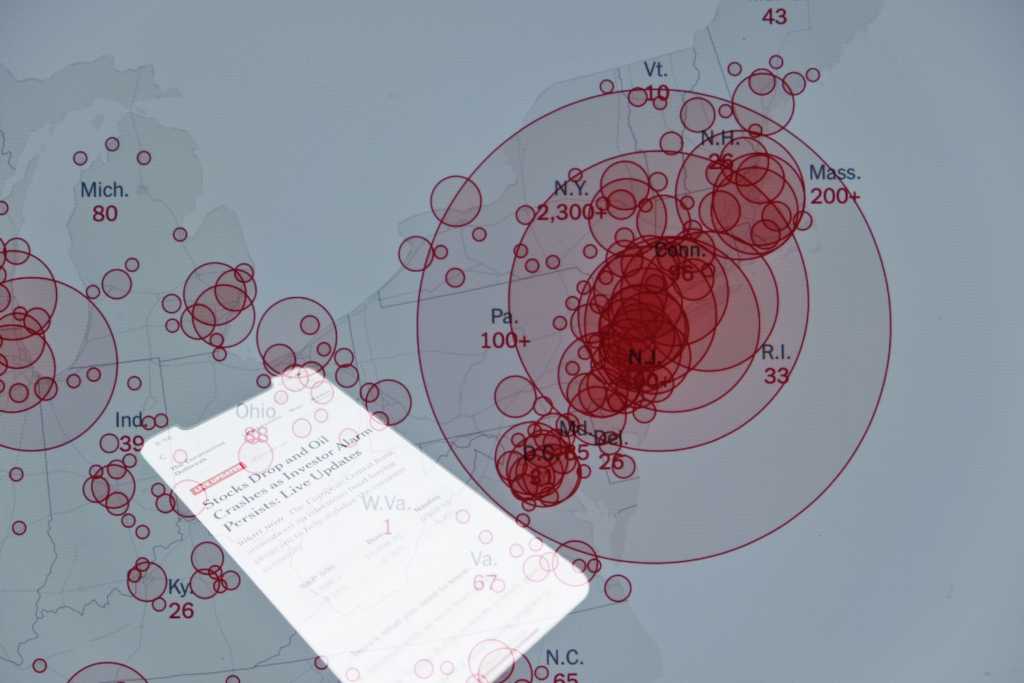For most of us, the way we practice our faith has changed drastically in the last couple weeks. We aren’t gathering together for small groups or sitting next to each other at church on Sunday mornings. And it all feels a bit odd.
Since the onset of the growing coronavirus pandemic, we are streaming our Sunday morning worship services on our smartphones, tablets, and TVs. So what does fellowship and ministry look like in this weird time?
With more time at home, we are spending even more time on the internet. The key, according to Michelle Diedrich, is to meet believers and unbelievers in that space.
Diedrich is director of Global Media Outreach, an organization founded in 2004 with the mission to share the Gospel with people via technology. To date, the group has presented the Gospel some two billion times and has seen more than 200 million people become Christians.
“We know they are going on the internet,” she told Faithwire, “and the question is: what will they find? We’re praying they’ll find Jesus.”
We spent a little time talking with Diedrich about how churches and Christians can best reach out to their fellow believers as well as nonbelievers during this uncertain time.
Some of Diedrich’s answers have been lightly edited for clarity.
What kind of resources should Christians seek when they feel gripped by fear?
Obviously, there are so many Scriptures. I think over 366 times, fear is mentioned in the Bible, and so the Bible gives you a lot of places to go for comfort. We’ve actually prepared a series of devotionals — “15 Days of Being in Quarantine” — to help people deal with some of those issues of fear, anxiety, loneliness, depression, anger about this situation.
For Christians, obviously we can trust God. We want to give that up to Him, knowing that he’s known about this all along. This is not new news to Him. We know we can trust the Lord. And what we’ve asked our volunteers to do is sharing how God is helping them through the crisis. I think that provides encouragement to other people.
How can we communicate those things to our unbelieving friends when we can’t see each other face-to-face? What are the dos and don’ts?
I would say the things to do is show the love of Jesus. How can you help people? By offering them help, whether that’s bringing things to their doorsteps, comforting them when they’re sick, even if you can’t connect directly.
And then, especially through social media, I think it’s very important that people have the conversations that show ways to give to others and really embrace the opportunity to love like Jesus. What are the ways Jesus showed love and how can you express that, particularly online?
On the opposite side of that, we would say it’s just as important to know what to avoid. Things like conversations the pandemic is leading to the end of the world or is God’s judgement on the world, political accusations, conspiracy theories. True or not true, it’s not helpful in terms of being an example for Jesus.
What opportunities does this present the church that they might not have thought about before this pandemic?
I believe this is a game changer. Faith organizations are going to have to learn how to serve people online. I think it’s a big wake-up call of the potential. We’re hearing from pastors who are putting their services online. Many churches that haven’t done this before, they are shocked at the response they’re getting. What we would say is now they need to go to the next step and say, “Our community is online. How can we serve them in using these tools?” So that they can be there when their faith community needs them at their point of need.
I think we’re going to see a big shift and a huge desire on the part of faith communities to learn how to use these tools more effectively and not just say, “Oh, that’s for the web team to handle.”
What advice would you give churches trying to catch up to the technology available?
Ask for help. If you don’t know how to do it, ask for help. It doesn’t have to be insurmountable. Many of these tools are so much easier than when we first started.
The second thing I would say is, if it’s baby steps that’s OK. Engage your community, whether that’s your elders, or your deacons, or people who might normally be visiting people in their homes. Can a few of them go online and offer to engage? See what kind of reaction you get from your community. Just providing that comfort during this time is very important because people do feel isolated.
I have to tell you, it’s not limited by age. That is one of the things we’ve found with our volunteers. Over 126 of our English volunteers are 80 years old or older. And we have one who is 97 years old. So age does not have to be a barrier to embracing this opportunity to using some of these digital tools.
Churches can use this now in ways that they haven’t before. And now is then opportune time, because your community has needs that you need to be able to be there to meet.
What has been really encouraging to Global Media Outreach during this crisis?
I have been blown away by the encouragement and love and humor that people are showing, really trying to boost each other up on social media. Social media is such a great thing but we have seen it used so poorly in many ways.
I have really been encouraged by the amount of love and quickness of response that people are sharing on social media in terms of reacting to this and trying to help each other.



